Friday Feb 27, 2026
Friday Feb 27, 2026
Friday, 14 June 2019 00:00 - - {{hitsCtrl.values.hits}}
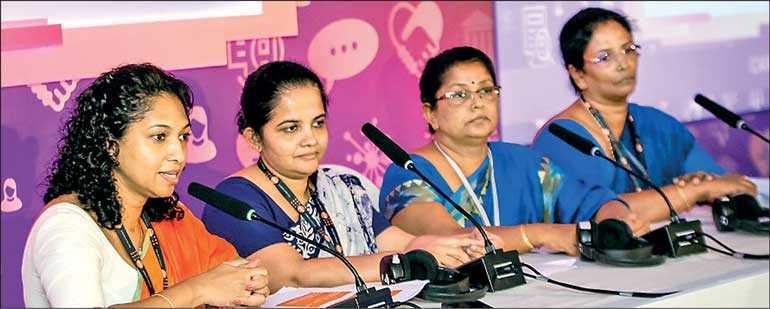
Violence against women and girls is widely recognised as an international public health and human rights concern. One in three female homicides in Sri Lanka are related to intimate partner violence and 69% of such incidences go unreported, according to a study done in five provinces commissioned by the United Nations Population Fund (UNFPA).
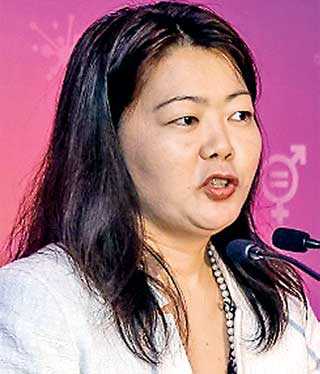 |
Ritsu Nacken |
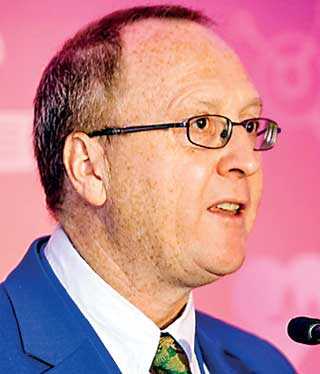 |
Claude Goulet |
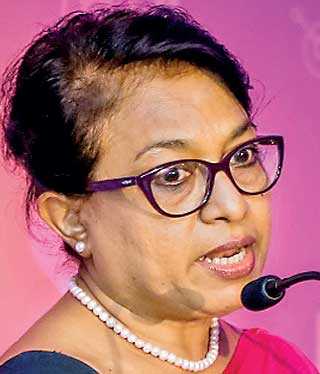 |
Dr. Deepika Udagama |
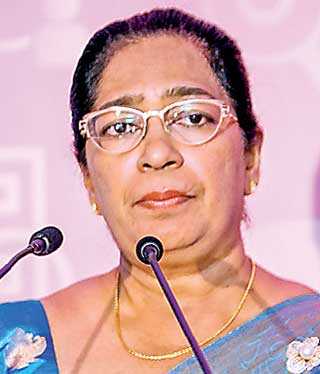 |
Dharshana Senanayake |
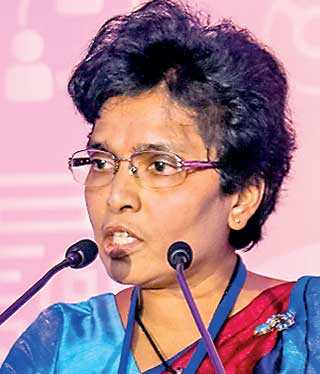 |
Indu Bandara |
In 2018, the High Commission of Canada to Sri Lanka issued a grant of CAD 900,000 to UNFPA in support of addressing sexual and gender-based violence by strengthening public institutions.
The 2.5 year project ‘We are With Her’ is implemented by UNFPA in collaboration with the Ministry of Women and Child Affairs and Dry Zone Development, the Department of Census and Statistics, and the Human Rights Commission in Sri Lanka. The project aims to ensure public sector officials stand with survivors of gender-based violence to provide essential services that support their safety, wellbeing and access to justice.
On 6 June, a progress review consultation was held to share highlights of the current work that has been completed through the project, and to discuss the way forward.
Speaking at the meeting, Women and Child Affairs and Dry Zone Development Ministry Secretary Dharshana Senanayake stated, “Evidence-based policies on violence against women is critical to ensure that we leave no one behind. UNFPA and the High Commission of Canada to Sri Lanka has contributed greatly in strengthening the capacity of our officials to address sexual and gender-based violence in the country.”
Department of Census and Statistics Director General Indu Bandara, who was also present at the meeting, further added: “Data on violence against women and girls is crucial to understanding the magnitude of the issue, and to ensure an institutionalised and coordinated response to support survivors of violence.”
Further, UNFPA Representative Ritsu Nacken highlighted: “The tragedy of the Easter Sunday attacks reminded us all of the urgent need to address the issue of violence. Addressing gender-based violence is an important step towards creating a peaceful Sri Lanka, and promoting gender equality is a critical part of the country’s journey towards a more inclusive society, which respects and promotes diversity.”
High Commission of Canada to Sri Lanka Counsellor (Development) and Head of Cooperation Claude Goulet added: “A major barrier to gender equality is sexual and gender-based violence. Canada is extremely happy to be a part of this project, which is one of the key initiatives of Canada’s Feminist International Assistance Policy.”
Speaking on the importance of understanding structural violence, Human Rights Commission in Sri Lanka Chairperson Dr. Deepika Udagama emphasised: “Sexual and gender-based violence is so normalised because of the socialisation process that lays down how men and women should behave. This affects the reproductive health and rights of women. Do women have the number of children they have, because they want to? Or is it because it is a cultural obligation?” She further added that, “Sri Lankan women have achieved so much over the past few years, yet our progress is lagging because of structural violence.”
To eliminate all forms of violence against women and girls, every police officer, every legal officer, every doctor, every nurse, and each and every public official should stand with her. Because, it is only if WE are with HER, that we can create a violence free Sri Lanka.